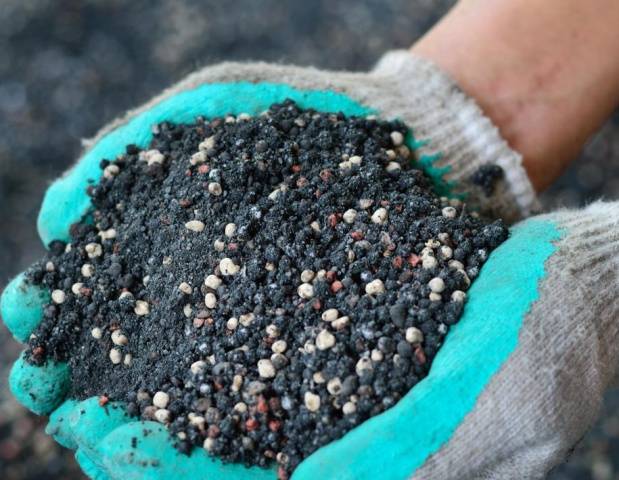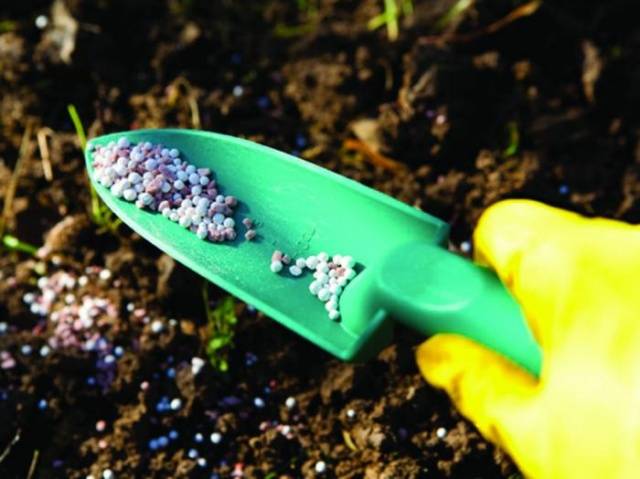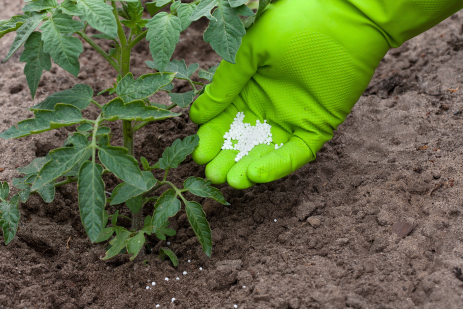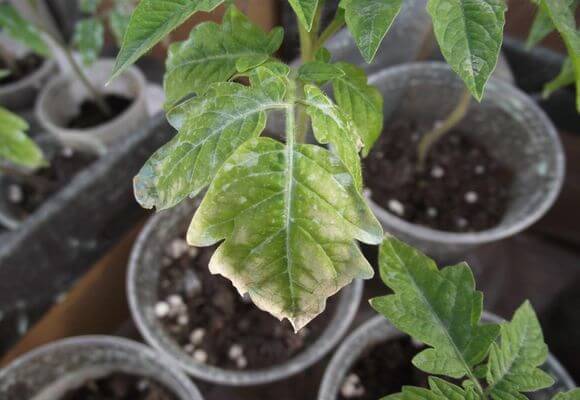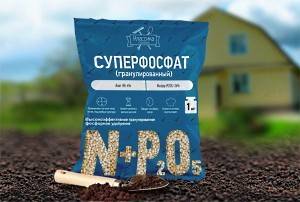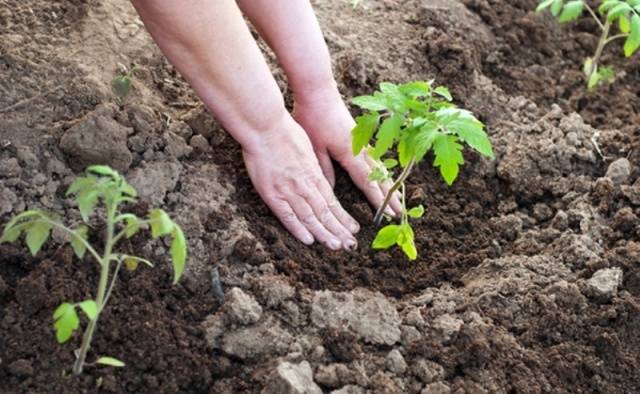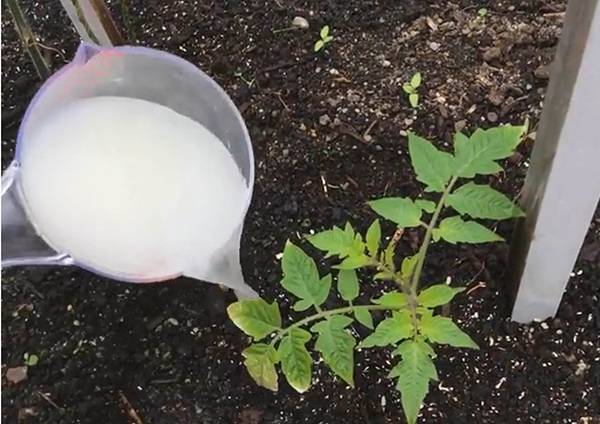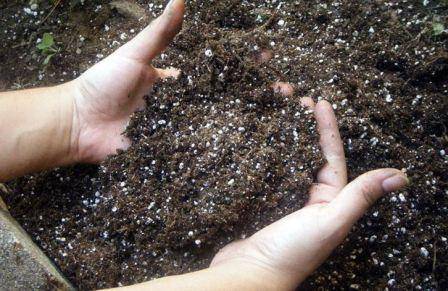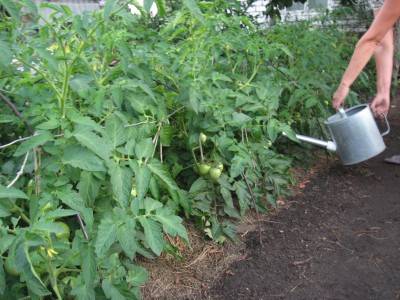Content
Phosphorus is very important for tomatoes. This most valuable element plays a major role in plant nutrition. It stimulates metabolic processes, so that tomato seedlings can continue to develop fully. Tomatoes that get enough phosphorus have a healthy root system, grow quickly, form large fruits, and produce good seeds. Therefore, it is necessary to figure out how to properly use phosphorus fertilizers for tomatoes.
How to determine the lack of phosphorus
The peculiarity of phosphorus is that an excess of this substance in the soil is simply impossible. In any case, even if there is more of it than is needed, the plant will not suffer from this. And an insufficient amount of phosphorus can be very bad for tomatoes. Without phosphorus, no metabolic processes will simply take place.
Among the signs of a lack of phosphorus are the following:
- leaves change color to purple;
- the outlines of the leaves change, and then they completely fall off;
- dark spots appear on the lower leaves;
- the growth of tomatoes is delayed;
- the root system is poorly developed.
How to apply phosphate fertilizers correctly
In order not to be mistaken when applying phosphorus fertilizers, you must follow these rules:
- granular fertilizers must be applied exactly at the root of the plant. The fact is that there is simply no point in scattering fertilizer over the surface of the soil. Phosphorus does not have the ability to dissolve in the upper layers of the soil. You can also apply fertilizer in the form of liquid solutions or when digging the soil;
- it is best to dig up the beds with the introduction of phosphorus in the fall. Thus, you can achieve the best results, because during the winter the fertilizer can be fully absorbed;
- don't expect results right away. Phosphate fertilizers can accumulate for 3 years, and only then give good fruits;
- if the soil in the garden sour, it is necessary to carry out liming a month before the application of phosphorus fertilizers. For this, the soil is sprinkled with dry lime or wood ash.
Phosphate fertilizers for tomatoes
Gardeners have been using phosphorus fertilizers for many years. Practice shows that the following substances have shown themselves best of all:
- Superphosphate. This fertilizer must be applied to the hole when planting ready-made seedlings. For 1 bush of tomatoes, you will need about 15-20 grams of superphosphate. It is also effective to make a solution of this substance. For this, five liters of water and 50 grams of the drug are combined in a large container. Tomatoes are watered with a solution at the rate of half a liter of mixture per 1 bush.
- Ammophos... This product contains a large amount of phosphorus (52%) and nitrogen (12%). You can add the substance once during planting of seedlings or use the drug to prepare a solution for irrigation. The best time to apply diammophos is when the tomatoes begin to bloom.
- Potassium monophosphate... The amount of phosphorus in this fertilizer is about 23%. It also contains 28% potassium. For the entire growing season, feeding with this fertilizer is carried out only 2 times. Suitable for root and foliar applications.
- Nitrophoska... This preparation contains potassium, nitrogen and phosphorus in equal amounts. Such a balanced diet has a very positive effect on tomato seedlings. A solution of nitrophoska is prepared from 10 liters of water and 10 teaspoons of the drug. Tomatoes are watered with this mixture a week after planting the seedlings.
- Bone meal or bone meal... It contains about 19% phosphorus. During planting of seedlings, two tablespoons of the drug should be added to the hole.
Superphosphate for feeding tomatoes
One of the most popular phosphate fertilizers is, of course, superphosphate... He is loved and often used by many gardeners on their plots. It is suitable for fertilizing not only tomatoes, but also other crops. The drug can be stored for a long time without losing its beneficial properties. Plants are not afraid of an overdose of phosphorus, since they absorb it only in the amount that they need. With experience, each gardener can determine how much fertilizer should be applied to the soil in order to get a good harvest.
Among the advantages of this fertilizer, one can single out the fact that tomatoes begin to develop faster, bear fruit longer, and the taste of the fruit becomes even better. Lack of phosphorus, on the contrary, significantly slows down the growth of seedlings, which is why the fruits are not so large and of high quality.
The need for plants in phosphorus can be seen by the following signs:
- leaves become darker, acquire a light blue tint;
- rusty spots can be seen throughout the plant;
- the underside of the leaves turns purple.
Such manifestations can appear after hardening of seedlings or a sharp jump in temperature. It happens that during a cold snap, the leaves may change their color for a while, but as soon as it gets warmer, everything will fall into place again. If the plant does not change, it is necessary to feed the bushes with superphosphate.
This complex can be applied directly to the soil during soil preparation in spring and autumn. But, it will not be superfluous to add the drug to the hole when planting seedlings. For 1 bush of tomatoes, 1 teaspoon of the substance is needed.
What soils need phosphorus
Phosphorus is harmless. Therefore, it can be used on all types of soil. It can accumulate in the soil, and then be used by plants as needed. It has been noticed that it is most effective to use superphosphate in soils with an alkaline or neutral reaction. It is much more difficult to use the preparation in acidic soil. Such a soil prevents the absorption of phosphorus by plants. In such cases, as mentioned above, it will be necessary to process the soil with lime or wood ash. Without this procedure, the plants will practically not receive the required amount of phosphorus.
Poor quality raw materials may not harm plants in fertile soil at all. But, at a high level of acidity, phosphorus can be converted to iron phosphate. In this case, the plants will not receive the necessary trace element, and, accordingly, will not be able to fully grow.
Superphosphate application
It is very easy to use superphosphate to fertilize the soil. It is usually applied to the soil immediately after harvest or in the spring before planting vegetable crops. For a square meter of soil, you will need from 40 to 70 grams of superphosphate, depending on the fertility of the soil. For depleted soil, this amount should be increased by about a third. It should be borne in mind that the soil in the greenhouse is more in need of mineral fertilizers. In this case, use about 90 grams of fertilizer per square meter.
In addition, superphosphate is used to fertilize the soil where fruit trees are grown. It is introduced directly into the hole during planting, and regular watering is carried out with a solution of the drug. Planting tomatoes and other crops is carried out in the same way. Being in the hole, the drug can directly affect the plant.
Types of superphosphates
In addition to ordinary superphosphate, there are others that may contain different amounts of minerals or differ in appearance and method of use. Among them are the following superphosphates:
- monophosphate... It is a gray friable powder containing about 20% phosphorus. Subject to storage conditions, the substance does not cake. Granular superphosphate is made from it. This is a very cheap tool, which makes it in great demand. However, monophosphate is less effective than more modern drugs.
- granular superphosphate. As the name suggests, this is a regular superphosphate in granular form. Has good flowability. It is much more convenient to use and store.
- ammoniated... This preparation consists not only of phosphorus, but also of sulfur in the amount of 12% and potassium (about 45%). The substance is highly soluble in liquid. Suitable for spraying bushes.
- double superphosphate... Phosphorus in this preparation is about 50%, potassium is also present. The substance does not dissolve very well. Inexpensive but very effective fertilizer. Affects the growth and formation of fruits.
Superphosphate itself is poorly soluble in liquids. But, experienced gardeners have found a way out of this situation. An excellent nutrient extract can be prepared from this fertilizer. For this, superphosphate is poured with boiling water and left for a day in a warm place. This cooking option allows you to preserve all the useful properties. The mixture must be stirred regularly to speed up the dissolution of the substance. The finished top dressing should look like full-fat milk.
Next, they begin to prepare the working solution. To do this, mix 10 tablespoons of the mixture with 1.5 liters of water. Fertilizer for tomatoes will be prepared from such a solution. To prepare a nutrient mixture in one container, mix:
- 20 liters of water;
- 0.3 l of a solution prepared from superphosphate;
- 40 grams of nitrogen;
- 1 liter of wood ash.
The most important component in this solution is nitrogen. It is he who is responsible for the assimilation of phosphorus by plants. Now the resulting fertilizer can be used for watering tomatoes.
Using superphosphate for tomatoes
Superphosphate is used not only for fertilizing vegetable crops, but also for various fruit trees and grain plants. But still, the most effective fertilization is precisely for crops such as tomatoes, potatoes and eggplants. Application superphosphate for seedlings tomatoes allows you to get strong bushes with more fleshy fruits.
For feeding tomatoes, dry or granular superphosphate is used. The substance must be distributed over the topsoil. Do not bury superphosphate too deeply, because this substance is poorly soluble in water, which may not be fully absorbed by plants. Superphosphate should be in the hole at the level of the tomato root system. Top dressing is used throughout the growing season, and not only when planting seedlings. The fact is that about 85% of the phosphorus from the fertilizer is spent on the formation and ripening of tomatoes. Therefore, superphosphate is necessary for tomatoes throughout the entire growth of the bushes.
Also consider the amount potassium in fertilizer when choosing superphosphate. There should be as much of it as possible. This element, like phosphorus, allows you to increase productivity and quality of fruits. These tomatoes have the best taste. An important point is that young seedlings absorb phosphorus much worse, while adult tomato bushes absorb it almost completely. And tomato seedlings may not benefit from phosphorus fertilizers at all.In this case, feeding is carried out not with dry superphosphate, but with its extract, the preparation of which is mentioned above.
The importance of superphosphate for tomato seedlings cannot be overstated. This is undoubtedly the best fertilizer for tomatoes. Not only phosphorus itself makes this substance so popular, but also the presence of other minerals in it. The most important among these are magnesium, nitrogen and potassium. Some types of superphosphate contain sulfur, which also plays an important role in the development of tomato seedlings. Superphosphate makes it possible to increase the resistance of bushes to temperature fluctuations, and also has a positive effect on the formation of fruits and strengthening of the root system.
Conclusion
As you can see, phosphorus fertilization is very important for growing tomatoes. It is almost impossible to satisfy the need for seedlings for phosphorus with folk remedies. Therefore, most gardeners use complex fertilizer for tomato based on phosphorus. Such feeding gives tomatoes strength to fight diseases and changes in weather conditions. Phosphorus is also responsible for fruit formation and root growth. All this together makes the plant stronger and healthier. The article listed some phosphorus-based fertilizing preparations for tomatoes. The most popular substance today is superphosphate. It fully satisfies the phosphorus requirement of tomatoes.
